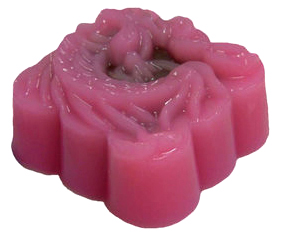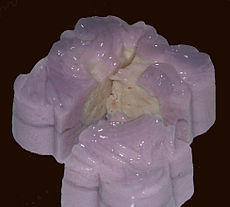9 September 2014
The “Moon Cake” story begins with the Mid-Autumn Festival held within 15 days of the first day of autumn (“autumnal equinox”). This festival is celebrated by the Chinese, Vietnamese, Korean, Taiwanese and Japanese.
Mooncakes are considered one the foods of choice during this fall festival traditionally associated with lunar worship and, now, at least, with moon watching. When groups of friends and families gather together, during the festival, mooncakes are served and exchanged.
A moon cake has a delicate pastry skin containing a tasty, sweat filling of some kind. Traditionally, the filing was made of whole salted egg yolks as symbols of the full moon. These cakes are almost always baked, but occasionally may be steamed or fried.
The moon cake has an imprint on the top – usually a Chinese character meaning either “longevity” or “harmony.” Around the character, small representations of the moon, flowers, vines or rabbits may appear together with the name of the producing bakery. Maybe these symbols or “writing” explain why the mooncake occasionally enters Chinese history as a secret from of communication. In fact, mooncakes have been used to smuggle secret messages past prying eyes during times of political unrest
Few make mooncakes at home. The mooncake is considered a delicacy and even at the lowest prices, each 1.5 inch thick and 4 inch wide mooncake sells for a about $2.50. And the cost can rise as high as $12,50 a cake. Of course, the giving and serving of mooncakes became such a socially popular custom, in modern times, that a “high end” market developed. And I do mean “high end.” Replicas of mooncakes made out of gold are reasonably popular gifts in extremely “well-healed” circles.
But you can guess that, in modern times, as mooncakes became more and more popular creative marketers changed the traditional mooncake to conform to modern tastes. Now, there are miniature mooncakes, fat-free mooncakes, high-fiber low-sugar mooncakes and mass (rather than bakery) produced mooncakes sold in airtight plastic packages.
And, then, there are the fillings. Traditional Chinese fillings are still available. But, now, new flavors have been added like coffee, chocolate, nuts, prunes, pineapples, melons, sweet potatoes, ham, chocolate, ice cream and cream cheese.
And remember those “high-end” (and high-priced) mooncakes? Well, there’s also a thriving market for mooncakes filled with pricey fillings like abalone, shark fin, champagne ganache, malt whiskey, truffles, or caviar.
M Grossmann of Hazelwood, Missouri & Belleville, Illinois



